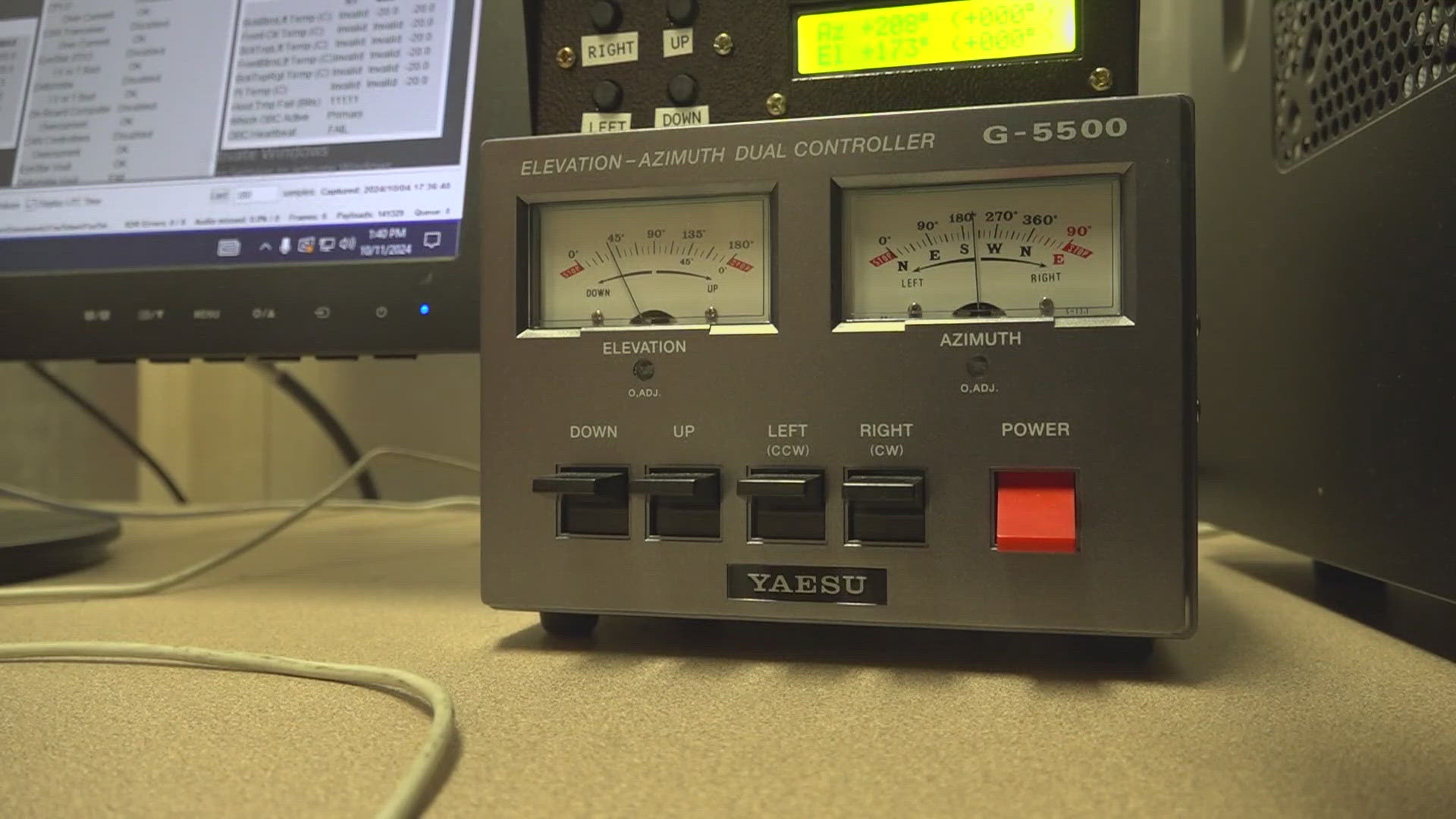ORONO, Maine — Three months after the launch of Maine’s first small research satellite, students are already using data collected from it across various fields of research.
The satellite, designed and built by students at the University of Maine, launched into orbit July 4. The satellite captures images of the earth and collects climate data.
"It's really exciting," UMaine PhD student Arman Kiani said.
Inside UMaine’s Wireless Sensing Lab, Kiani receives and observes data from the satellite.
He moved to Maine from Iran to make his mark in satellite research.
"It's the best place to work on projects and be motivated to keep going," Kiani said.
Dr. Ali Abedi, associate vice president for research at UMaine, said more than 4,000 people around the world receive climate data from the satellite to be used for all kinds of research, studying things like climate change, water quality, and energy.
"The reach is basically almost broad and unlimited, and it only depends on the imagination of the students—how they get the data and how they interpret it," Abedi said.
PhD student Mersedeh Najishabahang is using data from the satellite in her research on wireless propagation in forested areas.
She uses the satellite’s pictures of Maine to adapt her research as forests change.
"It's kind of unbelievable. It feels so good seeing the satellite that's working great and sending scientific data and engineering data," Najishabahang said.
Abedi said this project not only supports the space industry in Maine, but it can also help make tourism, agriculture, and other industries in the state more efficient.
"That feeling that the students can contribute to the economy, give back to the state of Maine, makes us very happy," Abedi said.
UMaine gives students the opportunity to get hands-on research experience.
"It really can build your knowledge base, and it really grounds the things you learn in the classroom and ties it back together into real-world experiences. It's a very valuable experience," UMaine mechanical engineering student Josiah Bloom said.
Many students in the program are preparing for future careers in engineering and space, shooting for the stars.
"It's an opportunity for me to look forward," Kiani said.
The satellite's orbit is expected to last anywhere from six months up to two years.
The project is part of NASA’s Cube Sat Launch Initiative through a partnership with the Maine Space Grant Consortium.

